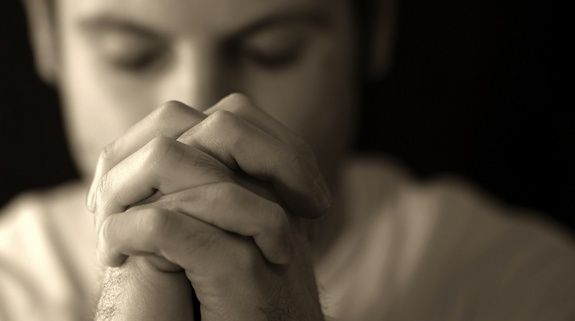Older People Hold Stronger Belief in God

Across the world, people have varying levels of belief (and disbelief) in God, with some nations being more devout than others. But new research reveals one constant across parts of the globe: As people age, their belief in God seems to increase.
The new study is based on data collected as part of the General Social Survey by researchers at the National Opinion Research Center (NORC) at the University of Chicago.
The researchers looked at data from 30 countries where surveys, taken at two or more time points between 1991 and 2008, asked residents about their belief in God. Participants answered three main "belief" questions, including their level of belief (from strong to atheistic), their changing beliefs over their lifetime and their attitude toward the notion that God is concerned with their personal lives.
Age seemed to be a big factor in belief. Belief in God was highest among older adults, with 43 percent of those 68 and older saying they are certain that God exists, compared with 23 percent of those 27 and younger, averaged across the countries surveyed.
"Looking at differences among age groups, the largest increases in belief in God most often occur among those 58 years of age and older," Smith said in a statement, referring to the change in belief between the 58 to 67 age group and those 68 and older. "This suggests that belief in God is especially likely to increase among the oldest groups, perhaps in response to the increasing anticipation of mortality." [8 Ways Religion Impacts Your Life]
Atheism ranged from 52 percent in the former East Germany to less than 1 percent in the Philippines; a largely opposite pattern was found for strong belief in God, with 84 percent of Philippine residents indicating such and 8 percent of those in East Germany saying they were certain God existed. The lowest "strong belief" in God came from Japan, where the level was 4 percent.
Overall, countries dominated by Catholic societies, like the Philippines, showed the strongest belief in God. The United States stood out for its high belief in God among developed countries. At the other end of the religion spectrum, atheism seemed to have the strongest hold in northwest European countries such as Scandinavia and those of the former Eastern Bloc, excluding Poland.
Sign up for the Live Science daily newsletter now
Get the world’s most fascinating discoveries delivered straight to your inbox.
Support for the concept that God is concerned with people in a personal way ranged from 8 percent in the former East Germany to 82 percent in the Philippines. About 68 percent of individuals in the United States held that personal view of God.
Over the study period, just five of the countries showed a consistent growth in their belief in God: West Germany, Israel, Japan, Russia and Slovenia. Meanwhile, 16 countries showed a consistent decline in belief: Australia, Austria, East Germany, Great Britain, Ireland, the Netherlands, New Zealand, Northern Ireland, Norway and Poland. Some countries showed a mixed pattern, with some measures moving toward belief and others away. [See full list of countries ranked by God belief]
"Belief in God has decreased in most countries, but the declines are quite modest, especially when calculated on a per annum basis," the researchers write in their April 18 report of the survey.
Though modest, this decrease could add up to a real effect over time.
"If the modest, general trend away from belief in God continues uninterrupted, it will accumulate to larger proportions and the atheism that is now prominent mainly in northwest Europe and some ex-Socialist states may spread more widely," they write, adding that it is possible the trend could go the other way, with belief in God seeing a rebound.
Follow LiveScience for the latest in science news and discoveries on Twitter @livescience and on Facebook.
Jeanna Bryner is managing editor of Scientific American. Previously she was editor in chief of Live Science and, prior to that, an editor at Scholastic's Science World magazine. Bryner has an English degree from Salisbury University, a master's degree in biogeochemistry and environmental sciences from the University of Maryland and a graduate science journalism degree from New York University. She has worked as a biologist in Florida, where she monitored wetlands and did field surveys for endangered species, including the gorgeous Florida Scrub Jay. She also received an ocean sciences journalism fellowship from the Woods Hole Oceanographic Institution. She is a firm believer that science is for everyone and that just about everything can be viewed through the lens of science.











